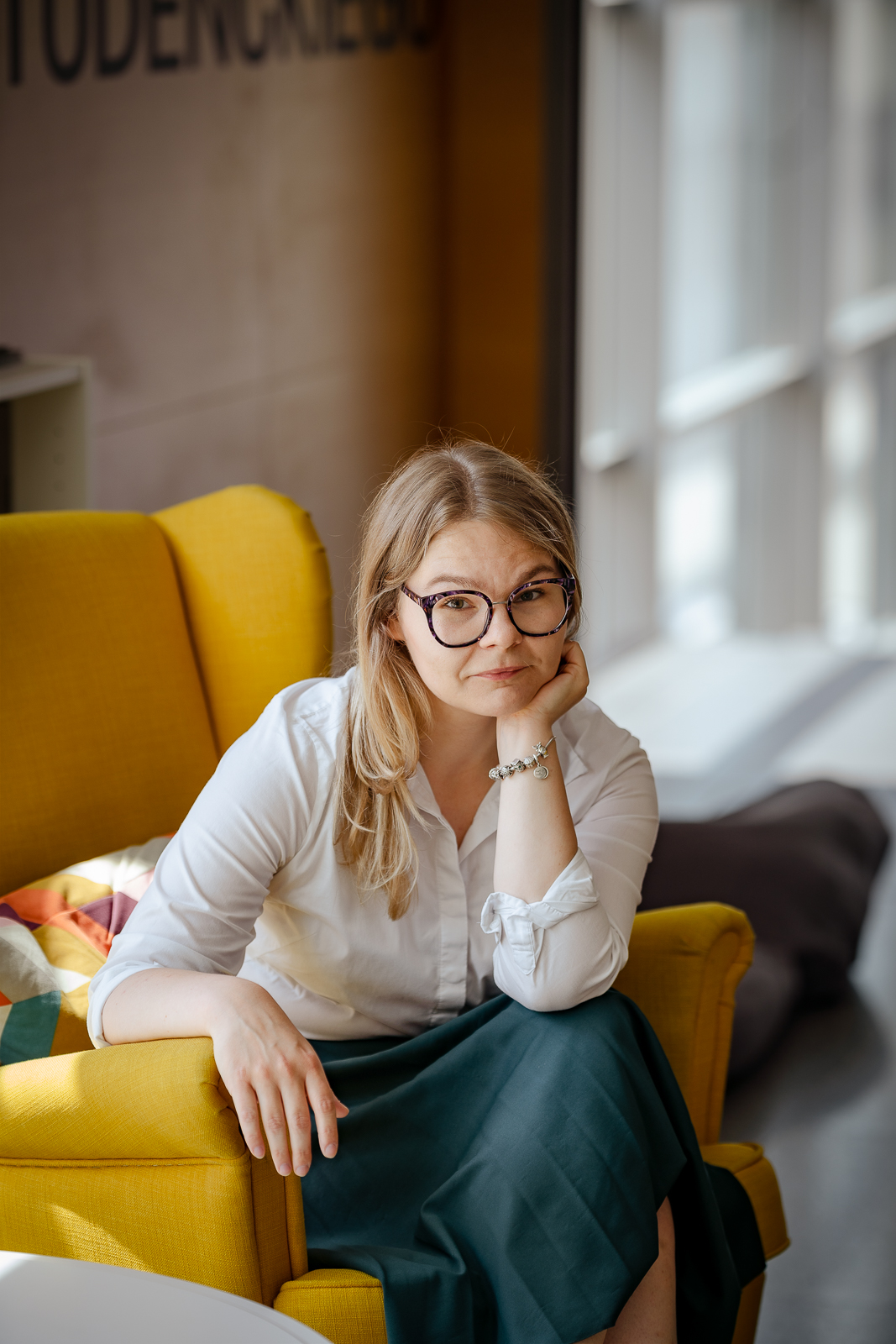
Dr Dominika Czerniak as a laureate in the Miniatura 7 Competition
Dr Dominika Czerniak – our researcher, Assistant Professor at the Department of Criminal Procedure at the Faculty of Law, Administration and Economics, has been awarded funding for her research on the “Model of Sexual Offence Proceedings” within the Miniatura 7 Competition.
Dr Dominika Czerniak’s topic of interest is an issue at the intersection of law, psychology and also sociology – that is, the problem of sexual violence.
The requirements for the law are clear: regulations should provide protection against behaviour that violates a person’s sexual freedom, and if this freedom is violated, they should make it possible to identify the responsible and bring them to justice (which is the domain of substantive criminal law).
While the premise of “the guilty must be punished”, especially in the context of, for example, the crime of rape, is correct, one should also bear in mind the guarantees of the accused in criminal proceedings – first and foremost, respect for the presumption of innocence (i.e. that a person is innocent until their guilt is established by a final judgment), or the preservation of guarantees arising from the right to defence.
– It is also important to “design” the procedural rules in such a way as to prevent secondary victimisation of the victim, i.e. so that the criminal proceedings do not deepen the trauma of the person who has experienced sexual violence (e.g. has been raped) or cause additional, unnecessary distress, explains dr Dominika Czerniak.
– Balancing these competing interests is a key issue, and so the question is how to do it properly so as not to upset the balance. Guilt must be proven. With that said, in rape cases, or other forms of sexual violence, the evidentiary options are often limited, coming down to assessing the testimony of the victim and the explanations of the accused, the researcher adds.
Therefore, finding out what evidentiary options the procedural authorities (especially the court) have and, consequently, what they take into account when they consider the evidence statements of the accused or the victim as credible, is another layer of research in the project.
The research will be divided into two parts. Firstly, criminal case files will be examined to see what – in practice – the courts have at their disposal in terms of evidence, how often it is possible to use materials/information that exist independently of the will of the accused or the victim (e.g. recordings, witnesses to an event), how evidence is assessed and, most importantly, what guides the courts in finding a given testimony or explanation credible.
As national pilot research will not allow the presentation of complete data, a library query is also planned together with a consultation trip to the Max Planck Institute in Freiburg in Breisgau (Germany) in order to learn about and discuss the results of the Institute’s research on sexual offences in the field of substantive criminal law and to conduct research relating to European standards.
The question of the definition of the offence of rape – whether, in order to accept this qualification of the offence, it is necessary to manifest an objection or whether the emphasis should be on the existence of consent to engage in sexual activity – has long been debated in substantive criminal law doctrine.
– Using works in the field of criminal law and criminology made at the Institute, in my preliminary research I will avoid duplication of research work, which in turn will allow me to focus more on trying to establish or reconstruct the European standard in terms of the model/models of sexual offence proceedings, and I will initially be able to familiarise myself with the regulations applied in other European countries, using the library resources of the Institute, explains our researcher.
The aim of the Miniatura Competition is to support scientific activities aimed at preparing the assumptions of a research project to be submitted to other National Science Centre competitions or other national and international competitions.
We wish you good luck and congratulations!
Ed. Katarzyna Górowicz-Maćkiewicz
Translated by Kamil Sobierajski (student of English Studies at the University of Wrocław) as part of the translation practice.



